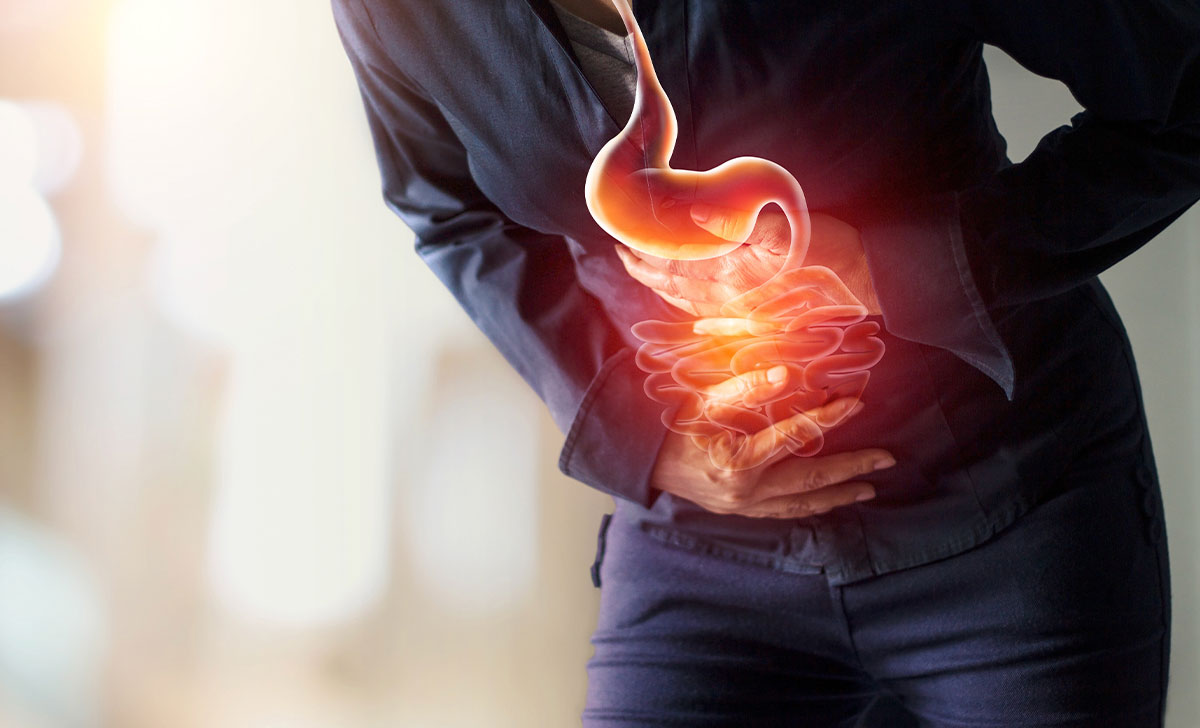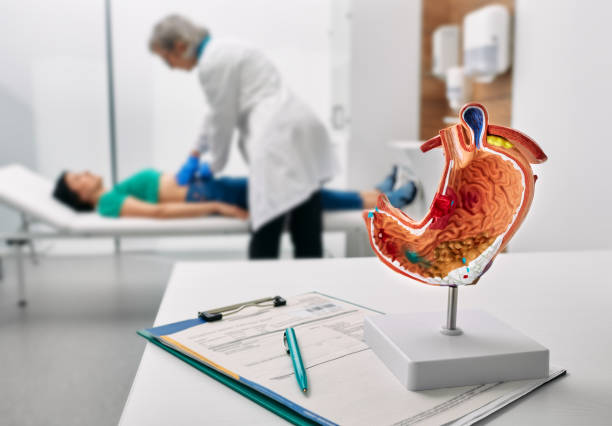How to Terminate Stomach ulcer
 Stomach ulcers are painful sores that can be found in the stomach lining or small intestine. Stomach ulcers are the most visible sign of peptic ulcer disease. They occur when the thick layer of mucus that protects your stomach from digestive juices is reduced, thus enabling the digestive acids to eat away at the lining tissues of the stomach. A very painful and very common affliction, a peptic ulcer is an open sore that has erupted within the stomach lining. Also called ulcus pepticum, peptic ulcer disease, and PUD. Stomach ulcers are easily cured, but they can become severe without proper treatment.
Stomach ulcers are painful sores that can be found in the stomach lining or small intestine. Stomach ulcers are the most visible sign of peptic ulcer disease. They occur when the thick layer of mucus that protects your stomach from digestive juices is reduced, thus enabling the digestive acids to eat away at the lining tissues of the stomach. A very painful and very common affliction, a peptic ulcer is an open sore that has erupted within the stomach lining. Also called ulcus pepticum, peptic ulcer disease, and PUD. Stomach ulcers are easily cured, but they can become severe without proper treatment.
Long-term use of nonsteroidal anti-inflammatory drugs (NSAIDs), such as aspirin and ibuprofen.
This is a common bacterium that can be found within the mucous layer that lines and protects the stomach and small intestine. Although it goes through its course without disruption many times, it can sometimes disrupt this mucous layer and cause the lining of the stomach or duodenum to become inflamed, developing the ulcer. H. pylori are commonly referred to and seen as the usual gastrointestinal infection and are thought to be spread by person to person contact or through food and water.
For many years, ulcers have been thought to be the result of an extra spicy diet, on the job stress, and other similar factors. However, doctors have found that the true culprit of the peptic ulcer is a corkscrew shaped bacterium that is called Helicobacter pylori, or H. pylori.
Symptoms
 A number of symptoms are associated with stomach ulcers. The severity of the symptoms depends on the severity of the ulcer.
A number of symptoms are associated with stomach ulcers. The severity of the symptoms depends on the severity of the ulcer.
The most common symptom is a burning sensation or pain in the area between your chest and belly button. Normally, the pain will be more intense when your stomach is empty and it can last for a few minutes or several hours.
• dull pain in the stomach
• weight loss
• not wanting to eat because of pain
• nausea or vomiting
• bloating
• burping or acid reflux
• heartburn (burning sensation in the chest)
• pain improves when you eat, drink, or take antacids :max_bytes(150000):strip_icc()/peptic-ulcer-disease-diagnosis-4707600_final-51498411f53a44d8bc49efda9d31e2fd.jpg) There are four main classifications of peptic ulcers that are categorized by their location Gastric ulcer
There are four main classifications of peptic ulcers that are categorized by their location Gastric ulcer
- Duodenal ulcer
- Oesophageal ulcer
- Meckel’s Diverticulum ulcer
There are also five types according to the actual ulcers present:
Type I: peptic ulcer located along curve of stomach
Type II: one gastric and one duodenal ulcer present
Type III: Presence of peripyloric ulcer
Type IV: Presence of proximal gastroesophageal ulcer
Type V: Ulcer located anywhere
There are three main tips that can prevent peptic ulcer disease, that are very important to follow.
1. Avoid smoking. If you don’t currently smoke, don’t start. If you do smoke, try finding the right way to quite as smokers have a higher risk of getting ulcers than non-smokers.
2. Avoid NSAIDS. Non-steroidal anti-inflammatory drugs including aspirin and ibuprofen are often taken for heart conditions, in which case a medication to prevent the stomach and intestines from irritation should be requested.
3. Avoid excessive consumption of alcohol.
The recommended drink limit for men is 2 and women is 1, meaning that anything more could cause stomach irritation. Drinking alcohol on an empty stomach is highly discouraged as the stomach lining will have no protection from the alcohol’s effects.
Following these tips can provide a safeguard from the factors that have a strong influence on the development of peptic ulcers.
Risk Factors
The average person has a lifetime risk of 10% for actually developing a peptic ulcer. With the bacterium Helicobacter pylori being shown as the main cause for these ulcers, third world countries and areas of the world in which there are poor water and sanitation systems have a higher risk of developing ulcers. It is also thought this bacterium infection could be transmitted through close contact and swapping of saliva during kissing, making those that are in close contact with someone prone to ulcers to also is at risk. Smokers and those in high stress environments are also at a higher risk. The risk is also apparent for those taking NSAID medications as well.
Prevention Tips
There are some great tips you should adhere to if you want to prevent peptic ulcers from developing. As the actual cause of these ulcers is a bacterium that is hard to prevent from entering the body, you should take special precaution to avoid upsetting the stomach lining, allowing the bacterium to create an ulcer.
There are several different tests.
Urea breath test-eliminates the need for EGD
EGD biopsy specimen culture-which is quite expensive.
1. Rapid urease test for detection of urease activity
2. Antibody level measurement through blood test
3. Stool antigen test
4. EGD biopsy specimen histological exam and stain.
Herbal and Home Remedies
There are many great herbal and home remedies suggested for the treatment of an ulcer. It is important to still seek medical advice as there may be underlying infections or illnesses that must be targeted as well. One of the most common suggestions for a home remedy of peptic ulcer disease is to use bananas. These bananas work well to neutralize the effects of the stomach acids in gastric juices. Eating two bananas each day with three to four glasses of milk is recommended for treatment of a peptic ulcer. Another great home remedy is using almond milk that is made from blanched and blended almonds. This controls any ulcer problems and provides the body with high-quality proteins and is great in combating the excess acids in the stomach. With Taslyworld products you can take care of Stomach Ulcer Stopping the Infection. The most appropriate treatment of a peptic ulcer is necessary to stop the infection and to increase the quality of life of which these patients experience day to day. The feeling of an ulcer each day is very debilitating and painful and could cause a stall in the activity of the patient due to the severe pain.
Medical Treatment
1. Proton Pump Inhibitors (PPIs)
- Medications like omeprazole, lansoprazole, and esomeprazole reduce stomach acid production, promoting healing of the ulcer.
2. H2-Receptor Antagonists
- Drugs like ranitidine and famotidine also reduce acid production but work differently from PPIs.
3. Antacids
- These can provide immediate, short-term relief by neutralizing stomach acid.
4. Antibiotics
- If the ulcer is caused by Helicobacter pylori (H. pylori) infection, a combination of antibiotics (e.g., amoxicillin, clarithromycin) is prescribed to eradicate the bacteria.
5. Cytoprotective Agents:
- Medications like sucralfate and misoprostol help protect the stomach lining and promote healing.
Lifestyle Changes
1. Avoid NSAIDs
- Nonsteroidal anti-inflammatory drugs (e.g., ibuprofen, aspirin) can exacerbate ulcers. Use alternative pain relievers like acetaminophen.
2. Quit Smoking
- Smoking interferes with the stomach lining's ability to heal and increases acid production.
3. Limit Alcohol
- Excessive alcohol consumption can irritate and erode the stomach lining.
Dietary Adjustments
1. Avoid Trigger Foods
- Spicy, acidic, and fried foods can irritate the stomach. Identify and avoid specific foods that worsen symptoms.
2. Eat Smaller, Frequent Meals
- Large meals can increase stomach acid production and delay healing.
3. Stay Hydrated
- Drink plenty of water to help maintain a healthy digestive system.
4. Include Healing Foods
- Foods rich in flavonoids (e.g., apples, celery, cranberries) and those with high fiber content (e.g., whole grains, fruits, vegetables) can support ulcer healing.
Monitoring and Follow-up
 1. Regular Check-ups
1. Regular Check-ups
- Follow-up appointments with a healthcare provider are essential to monitor healing and adjust treatment as necessary.
2. Endoscopy
- In some cases, a follow-up endoscopy may be performed to ensure the ulcer is healing properly.
Natural Remedies (Supplementary)
1. Probiotics
- Probiotics (found in yogurt, kefir, or supplements) can help restore the balance of good bacteria in the gut, potentially aiding in ulcer healing.
2. Honey
- Honey, especially Manuka honey, has antibacterial properties and may promote healing.
3. Herbal Teas
- Chamomile, ginger, and licorice root teas can soothe the digestive tract and reduce symptoms.
When to Seek Medical Attention
- If you experience severe symptoms such as intense abdominal pain, vomiting blood, black or tarry stools, or unexplained weight loss, seek immediate medical attention as these may be signs of complications.
Consulting a healthcare provider is crucial for a proper diagnosis and personalized treatment plan tailored to the specific cause and severity of the ulcer.




































